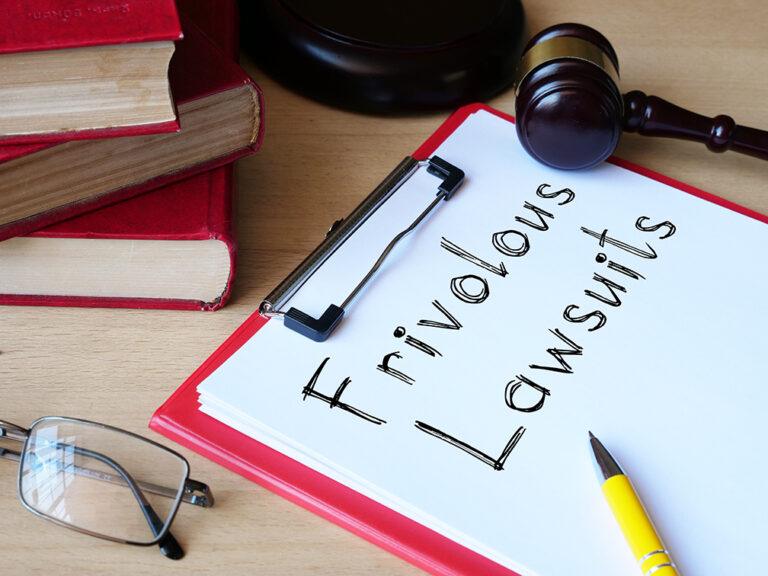Brad Klepper is out of pocket this month, but we hope you’ll enjoy this “rerun,” which was originally published in the January 1-15, 2021, edition of The Trucker.
Let’s get this out of the way up front: Nobody likes lawyers.
I get that. I really do. I am a lawyer myself, and I don’t even like lawyers. Shoot, there are days I don’t even like myself. Which — the more I think about it — is something I should probably discuss with a professional.
Regardless, there is one big reason why folks don’t like lawyers. (OK, I lied. There are actually several big reasons why folks don’t like lawyers.) But one of those reasons is that lawyers file frivolous lawsuits — which they are not supposed to do.
Just so you know, lawyers are officers of the court and are required to follow certain rules when they file lawsuits. Of course, if a lawyer violates these rules, the suit can be dismissed, and the court may sanction the lawyer. Lawyers can also be disciplined if they violate jurisdictions ethics rules relating to the filing of lawsuits.
While court procedures and ethics rules may vary slightly between jurisdictions, they all basically say the same thing: All lawyers are prohibited from filing “frivolous” lawsuits or suits otherwise without merit.
In other words — and as my grandfather would say — lawyers, are not supposed to file lawsuits that are full of “horsesh*t.” I never understood what Grandad had against bulls, but whatever….
So, if we know lawyers are not supposed to file these lawsuits, why do we seem to see so many of them?
The answer is that lawyers are permitted to file lawsuits when they know enough facts to believe the eventual proof will support the allegations contained in the lawsuit. This is done without knowing all the facts at the time the lawsuit is filed.
In addition to lawsuits being free from “horsesh*t,” the lawyer is also required to cite the relevant settled legal theory or state a new one he or she believes should be adopted by the court. A good example of a “new legal theory” would include the school segregation arguments made by Thurgood Marshall in the 1954 U.S. Supreme Court case of Brown v. Board of Education and the same-sex arguments made in the Obergefell decision of 2015.
Federal lawsuits are governed by Rule 11 of the Federal Rules of Civil Procedure (most states have adopted some version of this), which states that the new legal theory is “warranted by existing law or by nonfrivolous argument … or the establishment of the new law.”
This means if a lawyer files a lawsuit based on a theory so far-fetched that no court could be expected to accept it, then that lawyer could be in violation of Rule 11 or its state equivalent. If this occurs, that lawyer could be sanctioned by the applicable state bar for violation of ethics rules.
In light of all of the above, why don’t we see more lawyers getting fined or disciplined? The answer is that it’s a fine line that separates a “frivolous” lawsuit from one that might be “meritless” but argues for a new legal theory. So, while judges, the media and others may criticize a suit as “frivolous” and call for sanctions or other disciplinary action, the standard is high for imposing such sanctions. In fact, the standard of proof required in most jurisdictions for finding such a violation is “clear and convincing evidence.” That’s a high bar indeed.
At the end of the day, whether a lawyer violated the rules of professional conduct will be determined by each state’s disciplinary agency on a case-by-case basis.
But that still doesn’t mean we have to like lawyers.
Brad Klepper is president of Interstate Trucker Ltd. and is also president of Driver’s Legal Plan, which allows member drivers access to services at discounted rates. For more information, contact him at 800-333-DRIVE (3748) or interstatetrucker.com and driverslegalplan.com.
Brad Klepper is a regular contributor to The Trucker, providing valuable insights for drivers and motor carriers. He serves as president of Drivers Legal Plan, a national law firm offering discounted CDL ticket defense to members, and Interstate Trucker, a law firm providing CDL defense with no monthly fees.








